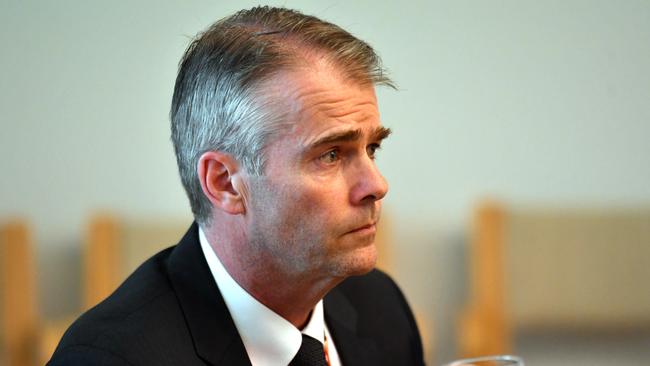Aged-care royal commission: airconditioning ‘not needed’ in nursing homes
The chief executive of the aged-care peak body faced questioning at the royal commission over ‘vague’ quality standards.

The chief executive of the aged-care providers’ peak body has faced tense questioning over apparently successful lobbying attempts to make new quality standards “more vague” and remove a requirement for airconditioning in nursing homes.
Appearing at a royal commission into the aged-care sector, Leading Age Services Australia boss Sean Rooney was asked why his group suggested the federal government remove a reference to “continuously” monitoring the quality of care in the new standards with the word “regularly”, an amendment that was adopted by the Coalition.
LASA’s response to the draft indicators, which come into effect in July, also queried a line that referred to ensuring a “comfortable internal temperature” for residents, which was also struck from the final code.
“Is what you are suggesting that if the standards are more vague they are a bit harder to measure?” senior counsel assisting the royal commission Timothy McEvoy said.
Dr McEvoy also asked if it was “the view of LASA that it is unnecessary to have heating or airconditioning in aged care” before an exchange between the two over whether there was a nursing home in Australia that could do without either heating or cooling.
“I don’t think we’ve said we wanted anything removed; what we sought was clarification,” Mr Rooney told the hearing. Dr McEvoy said: “Well you’ve succeeded in clarifying it out, haven’t you? That’s the effect.”
On the bigger issue of funding, Catholic Healthcare Australia aged-care director Nicholas Mersiades said commonwealth indexation of the controversial Aged Care Funding Instrument was “particularly harsh”.
“As a result, it is not keeping up; it is not faithful to price rises in comparable areas of the economy,” he said. “Understandably, providers are looking to maximise it as much as they can.”
It was this so-called “upclaiming” that led the Coalition to reduce funding growth in the ACFI by $2 billion in late 2015 and the 2016 budget, though Mr Rooney says the government never provided evidence of misuse.
“Without knowing the cost of care, we can never be confident that the subsidy is appropriate,” he said. Aged and Community Services Australia chief executive Patricia Sparrow said, “funding hasn’t kept pace and doesn’t reflect the changed nature of residential aged care”.
For example, she said, the proportion of nursing home residents assessed under the ACFI tool as requiring complex healthcare support — the most expensive domain — was 12.7 per cent a decade ago but this figure was now 53 per cent.
CHA’s Mr Mersiades said the funding system was “not sustainable, plain and simple”. “The conversation is going to have to go to the value of the land that people have their houses on,” he said, proposing consumers pay more for their own care. “Because most wealth is in the home. Not every last dollar needs to be preserved for the value of an inheritance.”
Dementia Australia’s Maree McCabe said much of this increasing cost of care was due to growing numbers of people with dementia. She said there were more than 430,000 people with dementia in Australia but this would hit 1.1 million in 30 years.


